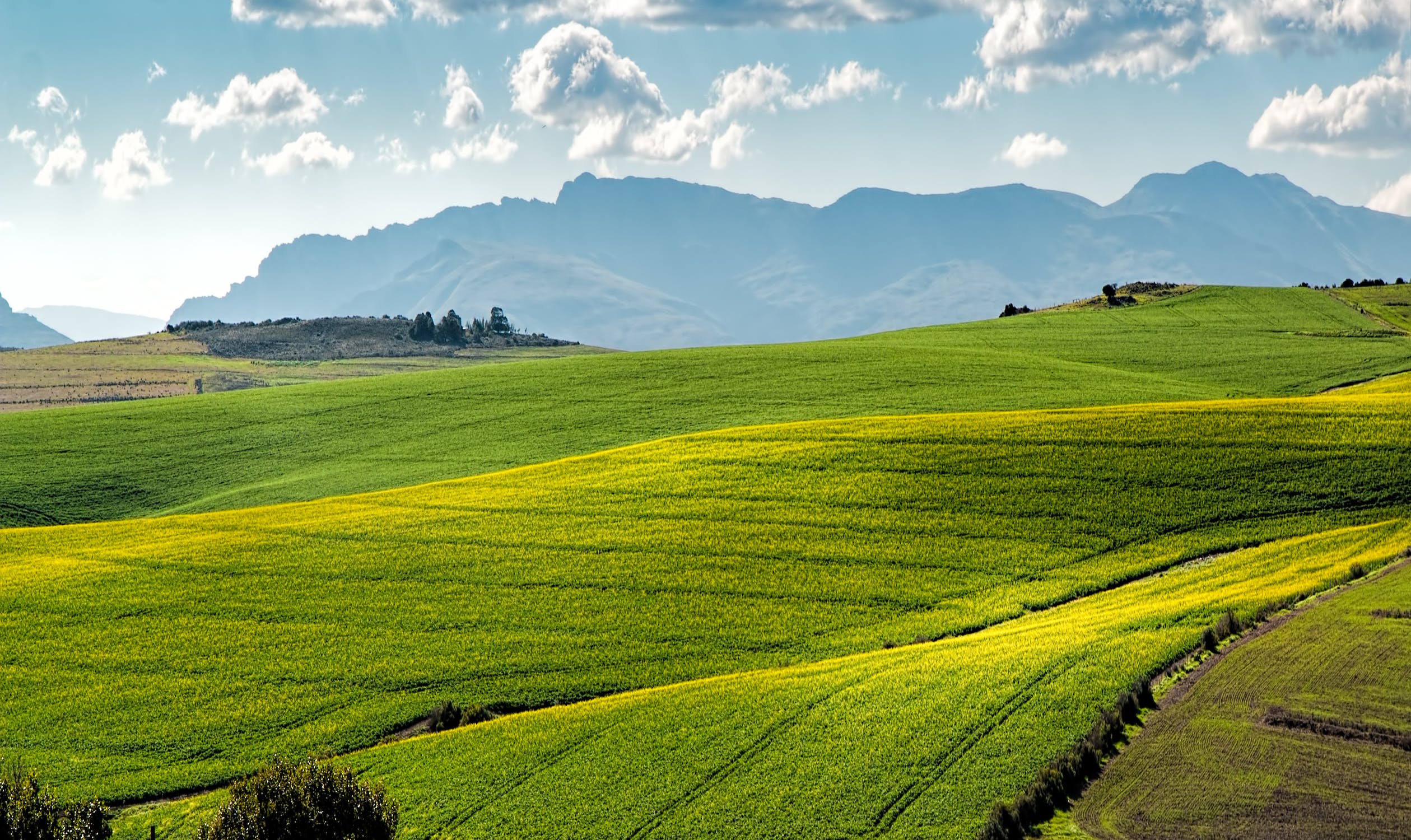Have you considered investing in farmland before?
You don’t need to be a farmer, worry about maintaining and growing crops or taking care of livestock.
Diversifying your portfolio of investments is probably one of the best things you can do to put your money to good use.
Expanding into agriculture is another way to increase your wealth.
How can you invest in farmland then? What are your options? What are the pros and con of investing in farmland? This guide will teach you everything.
Table of Contents
Why Farmland in the UK?
How can I invest in farmland?
Direct Purchase of Farmland
Crowdfunding
Investing in farm debt
Real Estate Investment Trusts (REITs)
Mutual Funds and ETFs
Buy Equities
Farmland is a good investment?
Pros
You can also find out more about Cons
When Is It A Good Idea To Invest in Farmland Land?
Why Farmland for Sale?
Farmland is a stable investment that is often overlooked by investors.
Forbes reports that farmland is a $9 trillion global market with historically high returns. For the last 47 years, U.S. Farmland has produced returns of more than 10%!
Not too shabby amirite?
AcreTrader calculated that $10,000 in farmland purchased in 1990, based on data from NCREIF and Bankrate would now be worth $199,700.
The amount of farmland in the U.S. is limited, but demand is constant. Agriculture is vital for feeding people and animals as well as alternative fuels and other resources.
Farmland is not correlated with the stock or real estate markets. It can be an excellent way to hedge against the volatility of other markets and diversify.
Investing in farmland does not come without its risks, just like any other investment. Read on to learn more about the pros and cons of this type of investment.
How can I invest in farmland?
You can start investing in land through a variety of methods. You can invest in land or mix assets related to the agriculture industry. Your personal financial goals and your risk tolerance will determine what you do.
Here are some common ways you can invest in farmland or agriculture.
Direct Farmland Purchase
The easiest way to invest directly in agriculture and farmland is to buy a farm. This is a much simpler thought than the actual process of buying farmland.
If this is the route you choose, it could be a good option. You don’t have to be a farmer in order to own a small farm, and you can generate returns on your investment.
The process is similar to investing in real estate. You can rent farmland to farmers who want to grow crops or tend livestock.
Both sides can benefit from a win-win situation.
Renting out your farm will allow you to pay off the loan, increase equity and earn income. Over time, your land’s value should also increase.
The farmer can still run his farm and earn money without needing to buy the land or pay a lot of money. They will pay you (the landlord) per month to rent the property.
Crowdfunding
In the past few years, the crowdfunding market has grown dramatically in the U.S. due to new regulations for investors. Fundrise and DiversyFund allow you to invest in real estate, fine art, or farmland.
The beauty of crowdsourcing is that you can invest less money, and deal with fewer logistical issues.
This is a good way to start investing in agriculture without putting too much money at risk.
Here are some platforms for crowdfunding farmland to consider:
FarmTogether
FarmTogether Platform.
FarmTogether is one of the most popular platforms for investing in farmland. The company manages and sources institutional-quality farmland to be used for all of its investment and crowdfunding offerings. These investments have a long-term horizon, usually 5+ years.
Their minimum investment is $10,000. FarmTogether also offers options for individual investors willing to invest more than $1,000,000 in equity per farm and who are interested in sole ownership.
You can invest through self-directed IRAs and Solo 401ks as well as corporations, LLCs and other vehicles. The downside is that you need to be a accredited investor in order to invest with FarmTogether.
AcreTrader
AcreTrader Platform.
AcreTrader is another popular platform for farmland crowdfunding. It is currently only available to accredited investors. AcreTrader, like FarmTogether only chooses 1% of assets to offer their investors. This ensures high quality.
AcreTrade will take care of all the management (accounting, insurance, working with farmers, etc.) AcreTrade takes care of all management (accounting and insurance, working with the farmers, etc.). Investors receive an annual income.
Minimum investments can vary but, based on some recent closed deals, have ranged between $15,000 and over $30,000. This is a lot of money to start.
Harvest Returns
Harvest Returns Platform.
Harvest Returns, like other crowdfunding platforms allows you to invest in agricultural investments.
The big difference is that both accredited and unaccredited investors will be able to invest. This allows more people to own a piece in the farmland pie.
The Harvest Returns team only chooses the best investments. You can expect deals with minimum investments ranging from $5,000 to $25,000 as an investor. You can invest in their products with a self directed IRA.
Investing in farm debt
According to USDA, farm debt will increase by $9.6 Billion (2.2%) to $441.7 Billion (in nominal terms) with a 3.1% expected rise in real estate.
As the debt may be increasing, you have a chance to invest in a new venture. You can lend money to farmers instead of purchasing farmland or using crowdfunding.
Farmers tend to borrow a large amount of money each year because the costs of operating a farm or purchasing equipment are high. It may be necessary for farmers to take out loans in order to purchase new equipment or machinery before the next farming season.
As an investor, you can buy farm debt directly through bonds or direct from the farmer. This will provide you with regular payments which are repaid by the borrower with interest over a certain period of time.
You run the risk of default when you purchase debt. If you find a farm that pays its bills consistently, investing in farm debt can be a great opportunity.
Real Estate Investment Trusts (REITs)
REITs are a collection of companies which will gather money from various portfolios of property. REITs are usually found in investment companies where you buy stocks and bonds.
You can also invest in REITs related to agriculture.
They are also a good way to diversify your investment portfolio. They also offer solid dividends as they must return profits to shareholders by law.
If you’re not an accredited investor, or can’t buy land because of your budget, then farming REITs could be a good income producing asset to add to your portfolio.
Consider these two REITs for farmland:
Gladstone Land Corporation is a publicly traded company (NYSE: LAND). The company owns over 90,000 acres in 13 states, including 127 farms.
Farmland Partners Inc. The company owns over 150,000 acres in 16 states.
Remember that REITs follow stock market trends. You are therefore not as diversified if you buy land directly and with debt or if you purchase shares through crowdfunding.
Mutual Funds & ETFs
You are not investing directly in farmland, but in companies and agriculture related businesses that own farms. Mutual funds and ETFs are also interesting investments.
If you want to diversify your portfolio, instead of investing in single companies, invest in ETFs or mutual funds that include companies related to agriculture, commodities, and farming.
When investing in these assets, you will typically pay fees that are based on the volatility of the stock exchange.
Three Examples
Invesco DB Agriculture Fund
iShares Global Agriculture Index ETF
Teucrium Soybean Fund
Here’s a list of all the ETFs that fall under this category. If you use the M1 Finance platform, you can also find some ETFs related to agriculture.
Buy Equities
You can invest in farmland by purchasing shares or equities of publicly traded companies.
Stock investing in individual companies is more risky than ETFs or mutual funds because you have to do the research and find the best companies.
Many companies in the agricultural and commodities sector own farms that are related to their business. This is a way to be involved in farming without having to own land or have large capital up front.
You can find companies in various categories, such as:
Crop production (Ex. Fresh Del Monte Produce, NYSE: FDP)
Fertilizer companies (Ex. Scotts Miracle-Gro Company (NYSE: SMG).
Transportation companies (Ex. Deere and Company (NYSE: DE)
Seed manufacturers (Ex. DuPont, NYSE: DD)
Food distributors (Ex. Tyson Foods (NYSE: TSN).
Farmland is a good investment?
Farmland is a great investment because it diversifies your portfolio, and has a low correlation to inflation or stock market fluctuations. Investors can generate income in many ways. Like any investment, there are risks.
Below are some common pros and con to help you decide if farming and farmland are good investments.
Pros
Everyone needs to eat
The farming industry will not disappear as the people depend on farms to provide them with food. As the population increases, farms will remain important.
The farm continues to be productive
Farms are becoming more productive and farmers require less land in order to achieve greater results. This is largely due to the technology and scientific advances that have made farming more productive.
You can earn money in multiple ways
Farmland investment can be a great way to earn money. It all depends on how you invest. You can make money by renting farmland to farmers, or appreciating the land.
Diversify from stock markets and real estate
As we have already mentioned, investing in farmland is a great way to diversify away from traditional markets like the stock and real estate. If you don’t invest in ETFs or mutual funds, your farm investment won’t have much correlation with these markets.
You can also find out more about Cons
Climate affects farming results
The effect of weather and climate on farmland is something that no one can control. A lot of rain, too much sun, or extreme cold fronts and heat waves can ruin crops or land. This can have an impact on farms around the world, not just the U.S.
Trade war politics
Politics, while I am not a fan of it, can affect agriculture and the farming industry. It impacts the business when there are different rules on trade between countries. If certain countries are involved in a “trade conflict” with the U.S., farms face the same problems as other industries.
The liquidity of farmland is low
Farmland and farm shares are not liquid investments. It may be difficult to sell if you want the money now. Farmland is a good long-term investment.
These assets can now be quickly sold through ETFs and mutual funds since they trade on the stock exchanges.
When Is It A Good Idea To Invest in Farmland Land?
You will need a lot of capital up front and you should be a qualified investor if you want to invest in agricultural land.
A higher net worth is important for any investment, whether it’s taking on farm loans, investing directly in farms, or crowdfunding farmland.
If you’re accredited and want to diversify, then farmland investments and agriculture could be a good option. You might want to start by investing in FarmTogether. It has less risk and lower minimum investments than purchasing a farm.
You can dabble in farming and agriculture through the stock exchange with less money upfront and without needing to be accredited. ETFs and mutual funds in the agriculture category are available to anyone.
What you do will depend on your financial situation, risk tolerance and overall financial goals.







